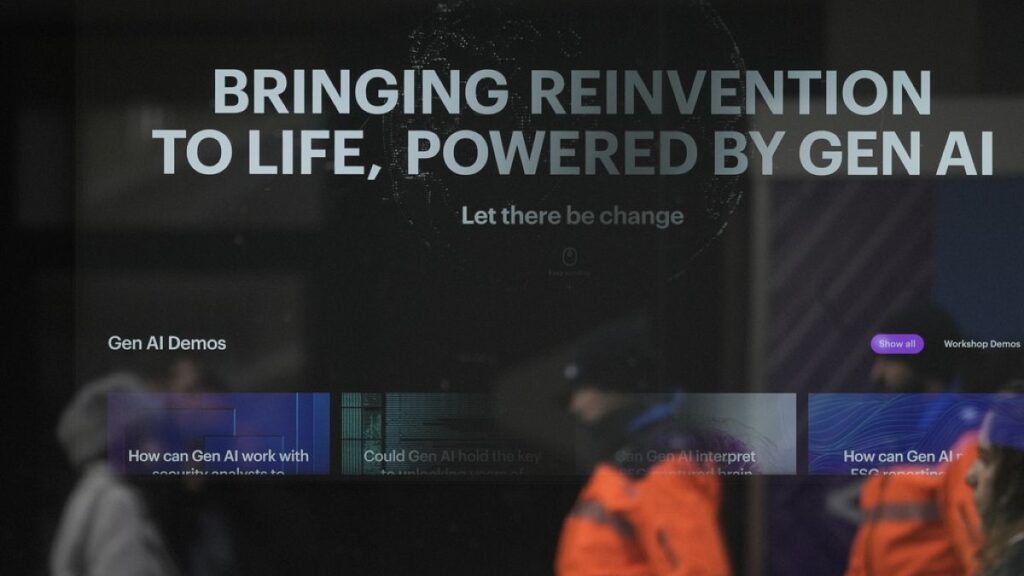Those who can find ways to complement AI with uniquely human skills and traits may have an advantage over those who avoid AI altogether, says Arun Sundaranjan, a professor at New York University.
Sundararajan, who teaches entrepreneurship and digital technology at the Stern School of Business, told Euronews Business: Because we know that generative AI is very likely to replicate all or some of your actions at some point.
“An important first step in thinking about how to move into your next job is to get better at using AI, or at least understand what it's good at. And what are the niches that I, as a human being, can pursue to continue to exist?”
How can entrepreneurs leverage AI to complement human capabilities?
According to Sundararajan, AI is most useful in situations where we perform the most mundane or time-consuming tasks, such as replying to emails, creating presentations, and writing endless lines of code.
This frees up entrepreneurs to handle more creative or delicate tasks, such as ideation. This ranges from considering new products, finding new target markets, and even new ways to improve and improve existing products.
In this way, by combining the best of both AI and human capabilities, entrepreneurs can offer customers more efficient, high-quality products that retain a human touch.
Sundaranjan said, “For me, one of the biggest hopes of AI, especially generative AI, is that it will give people capabilities they don't have and create a whole new generation of micro-entrepreneurs who own small assets. It's about ability.” part of the economy.
“A new healthcare worker, a new financial analyst, a new educator, a new legal assistant, a new creator, they all may have motivations and ideas, but they may not have the technical or creative ability to translate them. You don't have some of the skills or know-how to turn an entrepreneur's vision into reality.”
He also emphasized that in some cases, even people who had no intention of becoming entrepreneurs could be drawn into it, thanks to all the opportunities that generative AI offers.
Similarly, in the field of education, educators as well as entrepreneurs can use AI to provide quality education to disadvantaged communities and developing countries that don't always have the same opportunities.
The boundary between AI and human capital matters
But no matter how much advancement AI brings to the workplace, there still needs to be a line between technology and human capital to foster entrepreneurship and protect jobs.
Sundararajan noted some of the dangers of companies using AI in business processes, saying, “Many companies are trying to personalize AI for their best employees and improve the way they do their jobs. “I think they will understand how to write a successful business proposal.” They write great marketing content.
“And I think that's where the danger for employees starts to increase, because once you leave the company, if your abilities start to be replicated in AI systems that may have been developed to assist you in your work in the first place. What will happen?
“Your AI assistant or digital twin may be left behind, and someone who gets paid half your job will end up being about as productive as you because they have your intellectual capital.” I might be able to perform.”
In the short term, AI may help free up some of the work for employees, but it will prevent talented employees from giving their all for fear of being easily replaced by AI. There is a possibility. In this way, you may want to retain some of your human capital to remain an attractive candidate for your next job.
In the long run, this could lead to lower wages for some workers and even greater unemployment around the world as AI becomes better able to replicate human jobs.


